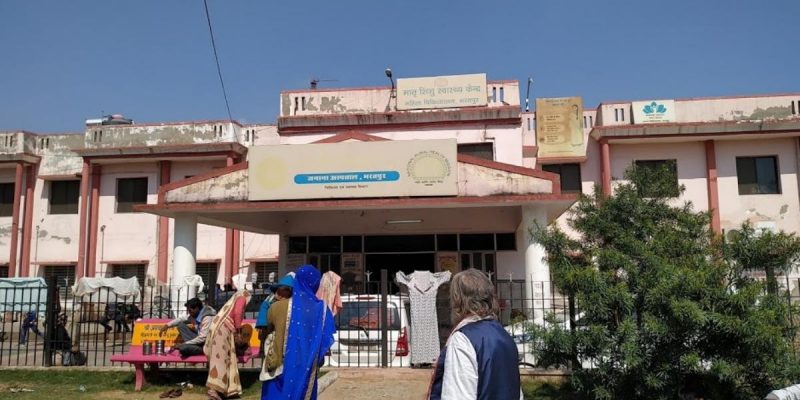Jaipur: The controversy over a pregnant woman allegedly being denied treatment because of her Muslim identity at a government-run hospital in Rajasthan’s Bharatpur has turned murkier with the government inquiry concluding that the allegations of discrimination could not be proved.
The Bharatpur administration inquiry, that was largely restricted to questioning the Muslim family on whether the doctor specifically said that she cannot operate because the pregnant woman is a Muslim, recorded a “clear no” from the woman’s husband and sister-in -law who had accompanied her to the hospital that day.
Relying on the “no” in their statements and on a medical report suggesting her critical condition, the inquiry concluded that it was not a case of Muslim victimisation.
However, it missed mentioning a part of the woman’s husband’s statement in which he clearly mentioned that the doctor asked for their name and address. The doctor, he said, said members of the Tablighi Jamaat had come from their area, upon learning their details.
Also read: Rajasthan: Baby Dies After Doctor Allegedly Refused to Treat Pregnant Muslim Woman
“When asked if we were denied treatment because of being Muslims, I said that the doctor didn’t particularly say that we are Muslims and that’s why she wouldn’t operate [on my pregnant wife]. She repeated our name and address and said Tablighi Jamaat [COVID-19 cases] have come up from that area,” Parveena’s husband Irfan Khan’s statement in the inquiry report reads.
Not considering the mention of Tablighi Jamaat as a relevant factor in an inquiry over allegations of discrimination based on religion, the authorities arrived at a conclusion.
“On the basis of the statements, pregnant woman’s admission slip, discharge slip, blood bank slip, sonography report, delivery documents, it is concluded that Muslim victimisation could not be proved. It shows that the woman was given primary treatment and after her condition deteriorated, was referred to Jaipur,” the inquiry concludes.
After the Tablighi Jamaat congregation in Delhi which led to spike in COVID-19 cases across India, there has been relentless communalisation of the disease and Muslims have been made a scapegoat.
The inquiry had also stated that the sister-in-law had said that after Parveena delivered in the ambulance [on their way to Jaipur] and the baby died, they returned to the Zanana hospital in Bharatpur again. However, the doctors operated on Parveena only after Irfan created a scene by calling a local reporter at the hospital.
“After Parveena delivered a dead baby, we took her back to Bharatpur hospital. The hospital staff told us, “Why have you come again, when we have referred you to Jaipur?” Then, only after Irfan called a reporter and created a commotion did they admit Parveena,” Fatima wrote in her statement.
Also read: How to Be a Good Muslim During the Coronavirus Pandemic
Numerous videos, apparently made by the hospital authorities as part of this inquiry, are also doing rounds on social media in which the husband is seen denying their original allegations. “I thought if I weren’t a Muslim, may be then they would have helped my wife with the delivery,” Irfan is heard saying in a video.
Another video of Bharatpur. Irfan Khan says no one mentioned his religion while turning his wife away; it was a figment of his imagination. “I thought if I weren’t a Muslim maybe they would have taken my wife in,” he says. @vishvendrabtp @Soumyadipta pic.twitter.com/961QVU8KE9
— Rakesh Goswami (@DrRakeshGoswami) April 5, 2020
The family has opened up to various media organisations, including Khabri Baba, about the pressure from the authorities to deny their original allegations of religious discrimination.
After conflicting versions of the family’s allegations and the inquiry report denying those allegations surfaced, opinions poured in on social media.
While some said the incident was politically motivated, others harnessed the fact that it was Parveena’s seventh delivery.
Some others mentioned on social media that her medical reports that suggested that Parveena had started bleeding prior to the delivery, which seemingly justified her being referred to a better hospital 200 km away in Jaipur.




